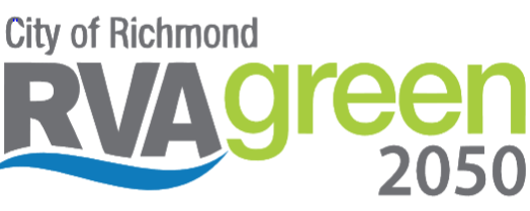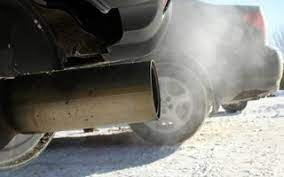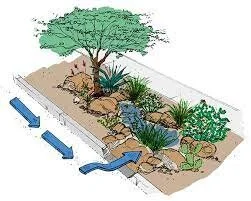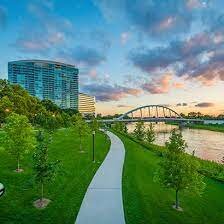Have questions about Richmond's climate action plans, community benefits, or how you can get involved? Find answers to common inquiries below. If you don't see your question, please reach out to us!
-
The disposable plastic bag fee will impact shoppers in the following way:
Cost: You would pay an extra five cents for each disposable plastic bag you receive at grocery stores, convenience stores, and pharmacies. This fee applies whether the store usually gives you bags for free or already charges for them.
Annual Impact (Estimated): On average, this could add up to about $2.12 per year to your shopping expenses.
Bags Affected: Only the plastic bags provided at the checkout are subject to the fee.
Purpose of the Fee: The money collected from this fee will be used to fund local environmental cleanups, educate the public about environmental issues and recycling, and provide free reusable bags to people who receive SNAP/WIC benefits.
Behavioral Impact: Beyond the financial cost, the fee is also designed to encourage a change in behavior. Cashiers may ask, "Would you like a bag with that?" This question is intended to make shoppers pause and consider if they truly need a bag, thereby reducing the use of bags for single or smaller purchases.
Start Date: The fee is expected to begin in January 2026.
In essence, the fee aims to encourage shoppers to bring their own reusable bags to reduce plastic waste, while also generating funds for environmental initiatives.
-
The fair treatment and meaningful involvement of all people regardless of race, color, national origin, or income with respect to the development, implementation, and enforcement of environmental laws, regulations and policies.
This goal will be achieved when everyone enjoys the same degree of protection from environmental and health hazards and has equal access to the decision-making process to have a healthy environment in which to live, learn, and work.
-
When a developed area experiences higher temperatures than nearby rural area, or when an area experiences hotter temperatures within a city.
This is primarily due to the concentration of buildings, roads, and other surfaces that absorb and retain heat from the sun, while lacking the cooling effect of vegetation like trees; essentially creating a "island" of higher temperatures within the city landscape.
-
Community-serving facilities augmented to support residents, coordinate communication, distribute resources, and reduce carbon pollution while enhancing quality of life.
Hubs provide an opportunity to effectively work at the nexus of community resilience, emergency management, climate change mitigation, and social equity while providing opportunities for communities to become more self-determining, socially connected, and successful before, during, and after disruptions.
-
While at home composting is a great way to reduce waste and create nutrient-rich soil, it's not always feasible for everyone or every household.
Luckily there are numerous drop sites around Richmond. You can find a compost drop off map here at Richmond Grows Gardens. Please note that these sites do not accept all types of food scraps.
OK TO ADD:
Fruits and Veggies Kitchen scraps
Compostable Bags
Eggshells
Bread Rice & Pasta
Paper Products: Paper Towels & Napkins, Paper Plates, Paper Bags, Coffee Filters & Tea Bags
(while Richmond does accept “browns” it is important to note that is it not the cities biggest need so please refrain from filling public compost bins with paper products.)
DO NOT ADD:
Meat / Bones
Dairy
Compostable Cutlery & Containers
Cooking Oil
Pet Waste
Diapers
Styrofoam
Glass & Metal
Plastics Trash
-
For a detailed list of all volunteer opportunities in the city, look at the Community Foundation. They have a vast array of resources that you can filter by your availability and interests to find the opportunity best matched to you.
The Office of Sustainability does not directly have volunteer or work opportunities. However, working with one of our partners is always an option. Check out our NCRG grant recipients to find an organization nearby that aligns with your volunteer interests and check out their websites to find available times.
Frequently Asked Questions
Glossary
Unsure about a term used on our site? Our glossary provides clear, straightforward definitions for key concepts related to Richmond's climate initiatives, community development, and sustainability efforts.
( A | B | C | D | E | F | G | H | I | J | K | L | M | N | O | P | Q | R | S | T | U | V | W | X | Y | Z )
ADA compliant sidewalks
Americans with Disabilities Act (ADA) compliant sidewalks possess a number of features that make them more accessible to individuals with disabilities. Standards define appropriate sidewalk width, surface texture, trip hazards, slope, and the availability of curb ramps.
Air Quality Index
Air Quality Index (AQI) is the nationally recognized indicator for reporting air quality. It runs from 0 to 500, and higher AQI values signify greater levels of air pollution and greater health concerns. A value below 50 (green) generally indicates good air quality, while a value above 300 (maroon) is hazardous.
Anti-idling
Motor vehicle emissions make up a significant portion of most cities' emissions. Anti-idling laws aim to reduce these emissions by requiring motorists to turn of their engines when parked, stopped, or standing for more than a set amount of time (three minutes, for example).
Anaerobic Digestion
Anaerobic digestion is the process through which bacteria break down organic matter - which includes animal manure, biosolids, and food wastes - in an environment that lacks oxygen (usually a sealed vessel).
BEV/HEV vehicles
BEVs are Battery Electric Vehicles, which are powered solely by an electric battery with no gas engine parts. HEVs are Hybrid Electric Vehicles, which use an electric motor to assist gas-powered engines and all energy comes from gasoline.
Bike-friendly infrastructure
Bike-friendly infrastructure is part of a "complete street" that is accessible and safe for all pedestrians, cyclists, public transit, and vehicles. It includes bikeways, lanes for bikes, shared use and quiet-street bike routes, painted buffer lanes, and conventional bike lanes, among others.
Blower duct/duct leakage testing
Blower door and duct leakage tests measure the air flow that passes through a duct system. These tests can help to identify inefficiencies and make repairs that will lead to lower energy bills, improved air quality, and better performance.
Climate Change
Carbon sequestration
Carbon sequestration is the process for capturing and storing atmospheric carbon dioxide, used to reduce the overall amount of carbon dioxide in the atmosphere and reduce the effects of global warming.
Clean energy
Clean energy is energy derived from renewable, zero-emissions sources, as well as energy saved through energy efficiency measures. Renewable energy comes from natural processes, and energy efficiency reduces the amount of energy required. A clean energy economy powered by both renewables and energy efficiency is the most sustainable energy planning scenario.
Circular economy
Circular economies share three principles: design out waste and pollution, keep products and materials in use, and regenerate natural systems. These circular economies aim to gradually decouple economic activity from the consumption of finite resources by promoting waste reduction and materials reuse.
Climate neutral
Climate neutrality is achieved by balancing the amount of emissions generated with Earth's natural capacity to absorb them. It does not necessarily mean zero emissions, but reaching an equilibrium between emissions and absorptive capacity.
Combined heat and power (CHP)
Combined heat and power (CHP) is an energy efficient technology that generates electricity and captures the heat that would otherwise be wasted to provide thermal energy used for heating, such as steam or hot water. CHP can work at an individual facility or building and be used in both residential and industrial processes, though it is most common in industrial settings.
Composting
a CO2 Equivalent
Carbon Footprint
Climate change refers to long-term shifts in temperatures and weather patterns. Such shifts can be natural, due to changes in the sun’s activity or large volcanic eruptions. But since the 1800s, human activities have been the main driver of climate change, primarily due to the burning of fossil fuels like coal, oil and gas.
Burning fossil fuels generates greenhouse gas emissions that act like a blanket wrapped around the Earth, trapping the sun’s heat and raising temperatures.
Composting is the natural process of recycling organic matter (leaves, food scraps) into a fertilizer. Anything that grows can decompose and composting helps to speed up this process.
Carbon dioxide equivalents (CO2e) are a unit of measurement that compares the climate impact of various greenhouse gases (GHGs) to carbon dioxide (CO2). CO2e is calculated by multiplying the mass of a gas by its global warming potential (GWP).
The total amount of greenhouse gases emitted into the atmosphere as a result of an individual's, organization's, or product's activities, essentially measuring the impact of one's actions on climate change through their carbon emissions; it includes both direct emissions (like driving a car) and indirect emissions (like the electricity used to power your home) which are generated through the production and consumption of goods and services.
Design phase
The design phase is the design of a building construction or renovation project, inclusive of the issuance of a request for proposal and the project budget approval.
Energy burden
Energy burden means the percentage of household income that goes toward energy costs. Low income, African American, Latino, and people who rent often have a much higher energy burden than the average household.
Energy efficient retrofits
Retrofits for energy can include improvements or modifications that may improve energy efficiency or decrease energy demand. These have the potential to reduce operational costs and help meet market expectations for newer buildings.
Energy Star standards
Energy Star standards are government-based benchmarks for energy efficiency in over 70 products.
EnergyCap
EnergyCAP is an energy management and utility bill software that allows users to benchmark buildings, analyze energy data use, and automate many accounting and management tasks.
Environmental justice
Environmental justice is the fair treatment and meaningful involvement of all people – regardless of race, color, national origin, or income – with respect to the development, implementation and enforcement of environmental laws, regulations and policies. No group should bear a disproportionate share of negative environmental impacts resulting from industrial, governmental and commercial operations or policies.
Equity
The term “equity” refers to fairness and justice and is distinguished from equality: While equality means providing the same to all, equity means recognizing that we do not all start from the same place and must acknowledge and make adjustments to imbalances. The process is ongoing, requiring identifying and overcoming intentional and unintentional barriers arising from bias or systemic structures.
E-waste
E-waste, short for electronic waste, refers to electronic products that are nearing the end of their useful life. Certain components of e-waste contain materials that can make them hazardous to human and environmental health.
Food waste diversion
Food Desert
Food waste diversion aims to redirect organic waste from the landfill and use it as a more useful resource. Food waste in landfills can contribute to global warming by emissions of carbon dioxide and methane gas that are released as it breaks down.
A geographic area where residents’ access to affordable, healthy food options (especially fresh fruits and vegetables) is restricted or nonexistent due to the absence of grocery stores within convenient traveling distance.
Green infrastructure
Green infrastructure is any of a range of measures that use plant or soil systems, permeable pavement (or other substrates), stormwater harvest and reuse, or landscaping to store, infiltrate, or evapotranspirate stormwater and reduce flows to sewer systems.
Green roofs
Green roofs, also called rooftop gardens, are a vegetative layer grown on a rooftop. Green roofs provide shade, remove heat from the air, and reduce temperatures on the roof surface and surrounding air; as such, they have been found to reduce the heat island effect and reduce building energy usage.
Greenway
Greenways are open space corridors that can be managed for conservation, recreation, and alternative transportation. They usually follow natural or existing land or water features. They serve to connect people and communities, provide recreational outdoor space, link cultural and historic sites, provide refuge for wildlife, and numerous other benefits.
Health impacts of climate change
Climate change influences human health and disease in numerous ways, and will intensify some existing health threats while creating new ones. Emerging health threats include respiratory and cardiovascular disease, injuries, premature deaths related to extreme weather events, changes in the prevalence and distribution of food and water-borne illnesses, and threats to mental health.
High-performance buildings
A high-performance building considers public building design, construction, and renovation programs that achieve certification using the U.S. Green Building Council's Leadership in Energy and Environmental Design (LEED) green building rating standard or the Green Building Initiative's 'Green Gloes' building standard, or meets the requirements of VEES.
Industrial waste
Industrial waste is an all-encompassing term used to describe material considered to be no longer of use after a manufacturing process has been completed. It can be hazardous or non-hazardous, although both can harm the environment if not properly managed. It can also include solid waste, toxic waste, chemical waste, and secondary waste (e.g., scraps, construction materials).
Municipal energy management plan
Municipal energy management plans aim to reduce their city's energy usage through a strategic plan for local government operations. The typical goal of these plans is to reduce energy consumption by practicing energy efficiency and environmental stewardship across city operations. Most of these plans work within a SMART framework.
Neighborhood amenities
Neighborhood amenities contribute to community life and enjoyment, and can include schools, stores, parks, and restaurants, for example. Families that live in neighborhoods with more of these community amenities tend to report more trust, sociability, and neighborliness and less loneliness and other maladies.
Net-zero energy
Net zero energy is a concept defined by the use of energy conservation, energy efficiency, and on-site renewable generation to account for 100% of a targeted building’s or community’s energy usage.
Organic waste
Organic waste is any material that is biodegradable and comes from either a plant or animal.
Portfolio Manager
Portfolio Manager is a tool created by the EPA to measure and track energy and water consumption and greenhouse gas emissions. It can be used to benchmark the performance of one building or a whole portfolio of buildings.
Regeneration of ecosystems
Ecosystem regeneration seeks to restore the vital ecosystem services that play an important role in human society, such as providing food, drinking water, materials, and fuel, as well as broader climate regulation. Urban sustainable regeneration focuses on the complex interactions between urban environments and ecosystems and attempts to implement planning processes that consider both.
Resilient infrastructure
Climate-resilient infrastructure is planned, designed, built, and operated in a way that anticipates, prepares for, and adapts to changing climate conditions. It can withstand disruptions caused by these climate conditions. It can include retrofits to existing infrastructure, new infrastructure, and new additional infrastructure such as sea walls.
Retro-commissioning
Retro commissioning is the first step in the building upgrade process. Commissioning outlines the interactions across all the energy flows in a building and produces a systematic method for planning upgrades that increase energy savings. It ensures that all systems are designed, installed, functionally tested, and capable of being operated and maintained according to the owner's needs, and retro commissioning simply applies this process to existing buildings that have never been previously commissioned.
RVAH20
The RVA Clean Water Plan seeks to provide better administrative oversight over wastewater, stormwater, and drinking water utilities and services in the City of Richmond. Goals range from improving water quality and quantity, protecting and restoring aquatic and terrestrial habitats, and engaging the public to share responsibility for achieving a healthy watershed.
Sustainability
Smart cities infrastructure
The practice of meeting the needs of the present without compromising the ability of future generations to meet their own needs.
Smart cities are a framework, mostly comprising communication and information infrastructures and technologies, to develop, deploy, and promote sustainable development practices to address urbanization challenges. It facilitates a more interconnected city that can improve energy distribution, streamline trash collection, decrease traffic congestion, and improve air quality, for example.
Transportation accessibility
Transportation accessibility measures how much you can get to in a given amount of time. It works jointly with transportation multimobility to determine the overall accessibility of a transportation system.
Transportation demand management
Transportation Demand Management (TDM) focuses on understanding how people make their transportation decisions and helping people use the infrastructure in place for transit, ridesharing, walking, biking, and telework. It seeks to ensure that the design of transportation and physical infrastructure naturally encourages alternatives to driving.
Transportation multimobility
Multimobility means combining a variety of transportation methods to move around.
Upstream emissions
Upstream emissions are emissions that are generated from production and processing operations, rather than the direct burning of fossil fuels. These often rise the total energy expenditures of production processes, such as the extra upstream emissions required to dilute or heat bitumen in oil sands deposits.
Virginia Energy Conservation & Environmental Standards (VEES)
VEES are a series of conservation and environmental standards in place to guide construction and new development in Virginia.
Vulnerability to climate change
Vulnerability to climate change encompasses physical, ecological, and social aspects that stem from increased extreme weather events, rising temperatures, changing precipitation patterns, sea level rise, and other aspects of climate on which the environment and human systems depend.

















































